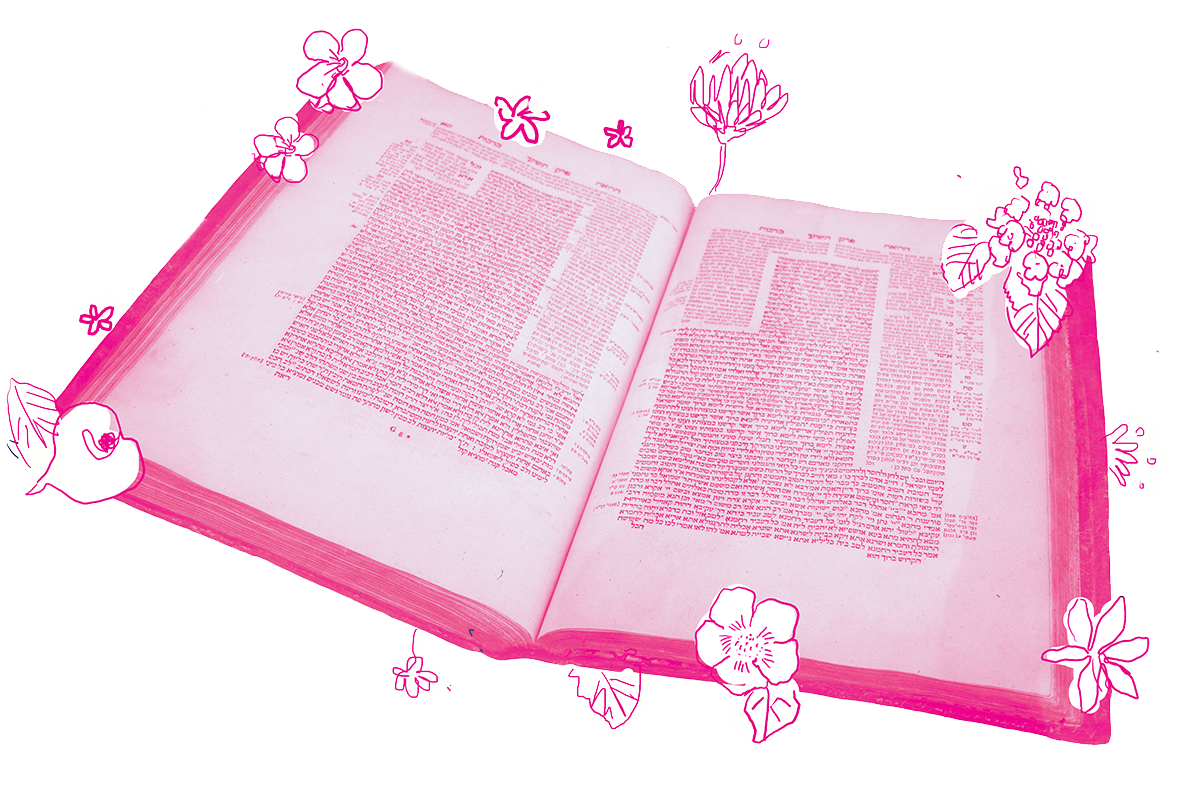If you walk into a synagogue today, you’ll find a light burning in front of the ark. This light, the ner tamid (literally: “eternal light”), has come to symbolize God’s eternal presence in sacred spaces. The practice is derived from a number of biblical sources, including Leviticus 6:6, which mandates that a fire be kept burning on the altar in the tabernacle. In our day, the ner tamid is usually electric and serves a symbolic purpose. But in the time of the Temple, the perpetual fire was integral to a number of rituals.
As we’ve been reading, coals were taken from the eternal fire on the altar for a variety of purposes, like lighting the menorah and burning the incense on Yom Kippur. On today’s daf, the Gemara asks if the prohibition against extinguishing the fire on the altar also applies to the coals once removed:
With regard to one who extinguishes the fire of the coals that are taken with the coal pan for the incense on Yom Kippur or the fire of the coals that are taken in order to light the candelabrum — Abaye said: He is liable. Rava said: He is not liable.
Not only do Abaye and Rava disagree about whether one is liable for extinguishing the removed coals, the Gemara offers two different interpretations of their disagreement.
The first interpretation suggests that Abaye and Rava agree that if you extinguish the coals that you have removed while still standing on the altar, you are liable for doing so because the verse prohibits extinguishing a flame “on the altar.” But, according to this interpretation, they disagree about a case when the coal is brought down off the altar and then extinguished:
Abaye said: He is liable, since it is still considered to be the fire of the altar. Rava said: He is not liable, because once it has been removed from the altar it is considered removed and no longer part of the altar’s fire.
In this first interpretation of the debate, Abaye never allows one to extinguish the removed coal. The second way that the Gemara understands the debate is more lenient, assuming that Abaye and Rava agree that one is not liable for extinguishing a coal once it has been brought down to the ground because it is no longer on the altar but that they disagree about the case where one extinguishes a coal that has been removed from the main fire while still standing on the altar:
Abaye said: He is liable, since it is still considered to be the fire of the altar. Rava said: He is not liable, because once it has been removed from the altar it is considered removed and no longer part of the altar’s fire.
What unifies these two readings is the notion that the coals can’t be extinguished for as long as they are still considered to be a part of the altar fire. The question is when that separation happens. Is it as soon as they are lifted from the fire? Or at the time they are taken down off the altar?
An important factor in this determination is why the coals are being taken in the first place. If the coals are taken for no purpose whatsoever, they are still effectively considered as part of the original fire and one should be held liable for putting them out. But, if one removes them for the purpose of fulfilling another mitzvah, the coals become independent from the fire on the altar.
The law follows Rava: One is not liable for extinguishing the coals removed for lighting incense in the Holy of Holies on Yom Kippur. Later halakhic authorities rule based upon the second more lenient reading introduced by the Gemara. While this legal decision does not directly impact Jewish life today, the talmudic discourse does help us to think more deeply about the question: “When does an object acquire its own unique status?” The Talmud suggests that the answer has to do with place and purpose: the coals of the fire becomes separated from altar when they are removed to a new place (i.e., brought down to the ground from the altar) or when they are removed for a particular purpose (i.e., when they are taken to fulfill another mitzvah).
Read all of Yoma 46 on Sefaria.
This piece originally appeared in a My Jewish Learning Daf Yomi email newsletter sent on May 27th, 2021. If you are interested in receiving the newsletter, sign up here.
The post Yoma 46 appeared first on My Jewish Learning.




